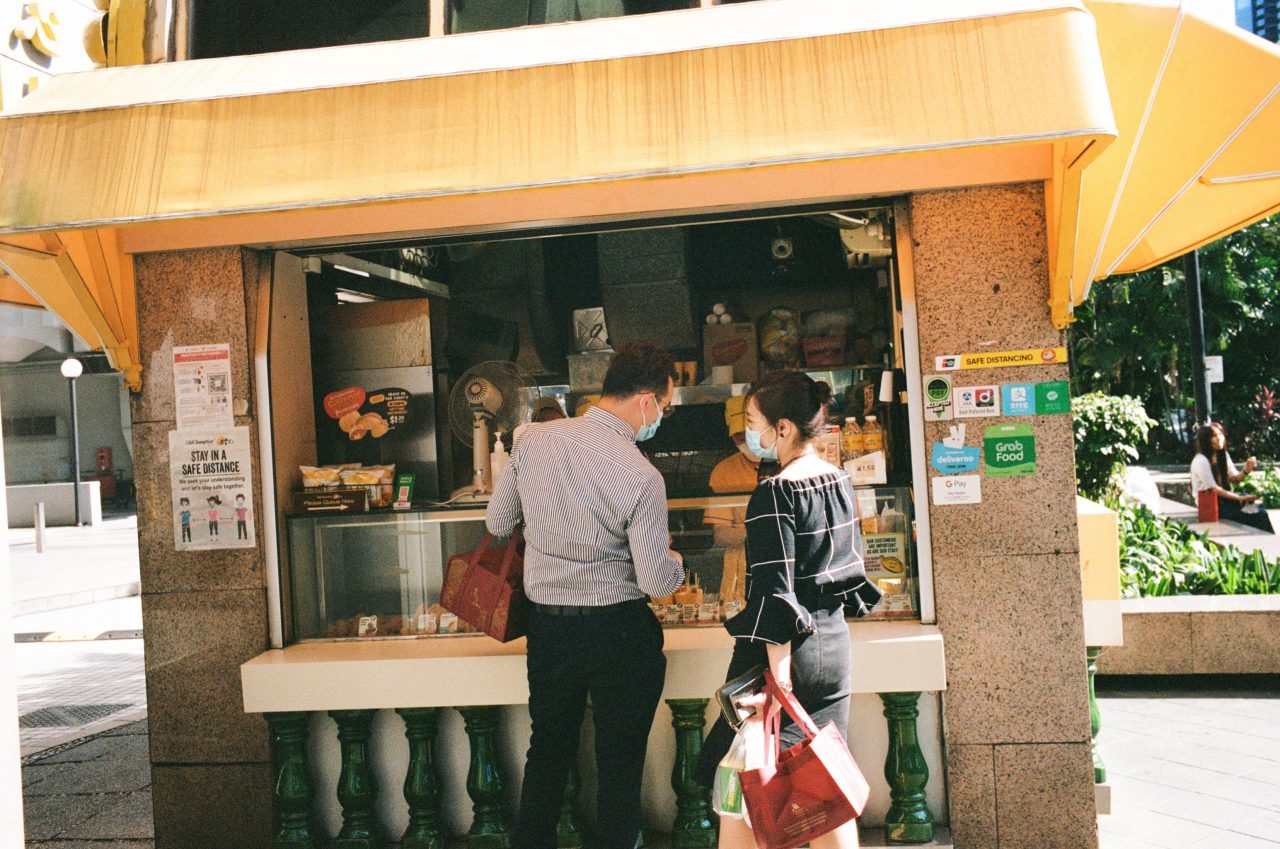Photography by Isaiah Chua for RICE Media.
As the former boxing heavyweight champion, Mike Tyson once said, “everyone has a plan until they get punched in the mouth.”
ADVERTISEMENT
Since the arrival of the Delta variant on Singapore shores in May 2021, every Singaporean is sporting a bleeding lip, from the Multi-Ministry Task Force (MMTF), who published a Straits Times op-ed back in June on ‘Living Normally, With Covid’, only to take a ‘pause’ this month as Delta infections and ICU rates climbed, to the average Singaporean hoping that endemicity meant more predictability in Singapore’s reopening strategy.
Understandably, there’s been a lot of frustration and denial at the recent turn of events. But that’s what the Delta variant does: it forces each country to choose from a list of bad to worse options.
For starters, the Delta variant is not the flu. It is at least 3-4 times more transmissible, with an estimated reproduction value (R0) between 5 to 8 (vs. a median value of 1.28 for seasonal influenza). Unlike the original Covid strain, Delta no longer relies on super-spreader events to infect entire communities; it requires only a less-than-perfect response to rapidly proliferate.
Unfortunately, perfect responses are impossible in the middle of a pandemic.
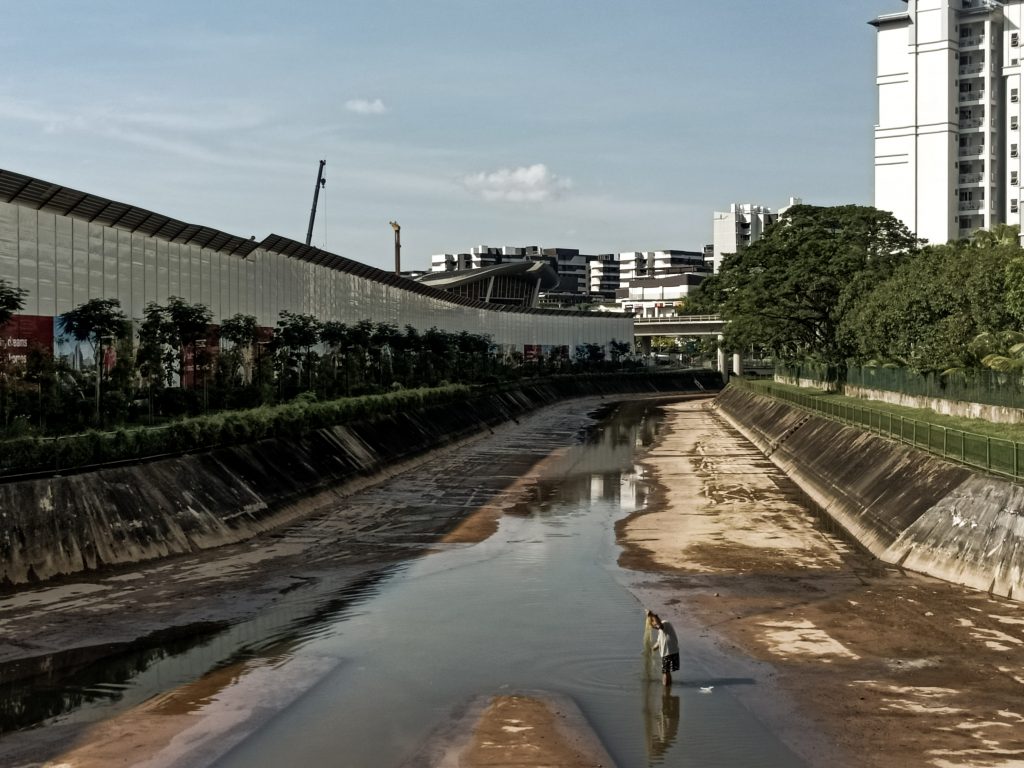
If the experience of highly vaccinated countries like Israel are any indicator, one thing that Singaporeans will be hearing more about in the coming weeks are breakthrough infections, defined as fully vaccinated individuals who test positive for COVID-19.
The vast majority of these cases will experience only mild symptoms. But at scale, breakthrough infections have the potential to create logistical nightmares that the seasonal flu can’t ever hope to match.
Even with current restrictions in place, Singapore has already started seeing manpower shortages and delays in public transport, as well as a dwindling supply of hospital beds, forcing MOH to transition to home quarantine for less serious cases.
Various media outlets and MOH have published step-by-step instructions for what to do when you test positive for COVID. But as we all know, what happens on paper rarely translates perfectly into reality.
Based on interviews conducted by RICE, the actual experience of getting Covid on the ground can be summed up in two words: confusion and uncertainty. And understandably so.
Despite every respondent experiencing only mild symptoms, their anecdotes show us how breakthrough infections are more complicated than we think. Not only can they upend the lives of those who test positive, but almost everyone around them as well.
These are their stories, told in their words. Pseudonyms have been used to protect their privacy.
1. Breakthrough infections affect the whole family
Tarun, 19, NSF
Vaccinated with Moderna
Symptoms: Cough, phlegm, runny nose
My name is Tarun. I’m 19 years old and am currently serving NS. In mid-September, while on leave, I was feeling sick. So before reporting back to camp, I decided to take an Antigen Rapid Test (ART) at home.
ADVERTISEMENT
The result came back positive.
Initially, I was very shocked because COVID was just something I’d been hearing about in the news. I didn’t expect it to happen to me!
Furthermore, my younger brother has his O-levels coming up, so I was worried about how my positive test would impact his studies. The entire household—including my parents and my brother—had to get themselves tested. My dad’s results also came back positive.
This was happening around the time when Singapore was implementing the home isolation policy. Things were changing so fast, I wasn’t sure whether this new policy applied to us.
In the end, SAF and MOH got in touch with me and my dad respectively, and we were transferred to care facilities. I was eventually discharged in 7 days after experiencing no major side effects.
However, a few days into my quarantine, I found out that my brother also tested positive. Luckily, the home isolation policy was implemented in time so he was able to self-isolate at home. His studies did not get majorly affected—all of his study materials were at home.
I was also worried about my mom living under the same roof as him. She had to isolate herself from my brother, leaving his meals at the door.
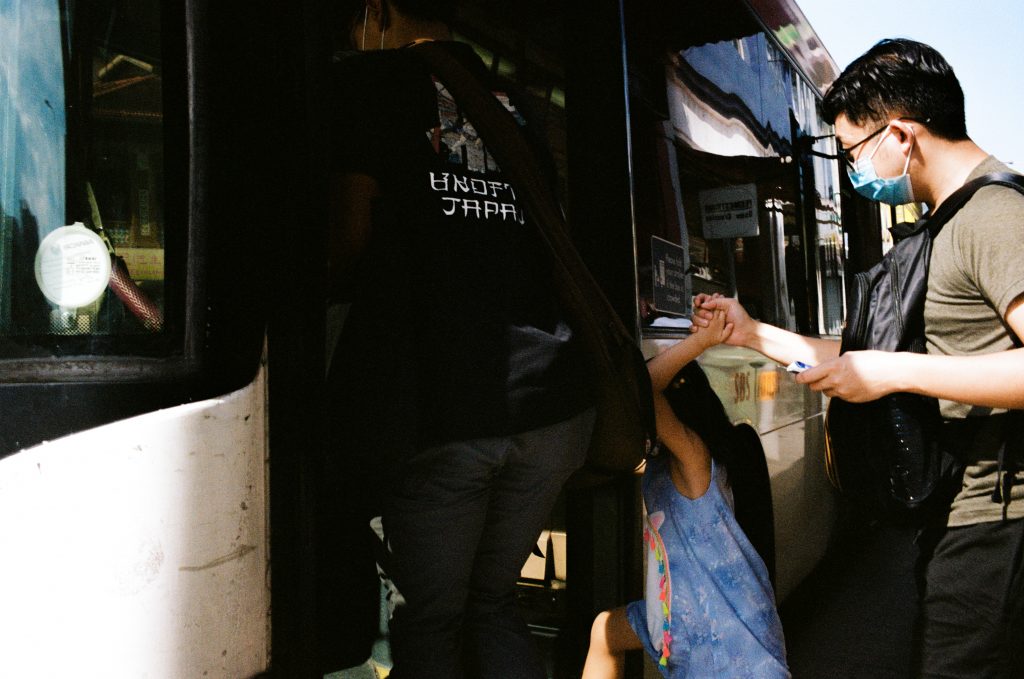
2. Breakthrough infections add more stress to caretakers of the elderly and young children
Anna, early 30s, Marketing
Vaccinated with Pfizer / BioNtech
Symptoms: Blocked nose
My name is Anna. I’m in my thirties and I live with my 90-year-old grandpa, just the two of us. I’ve been staying with him since before the circuit breaker last year because I didn’t want him to be alone.
On 7 September, my family sent my grandpa to the hospital because he suddenly became weak in the knees and couldn’t walk. While we were holding him, we realised he felt warm and took his temperature. He was running a fever. But we didn’t for a moment suspect that he had Covid. We just thought it was some infection that affected his ability to walk.
It wasn’t until the next morning when the hospital updated us that he was COVID positive.
When I found out he was positive, I took an ART self-test at home too.
I felt a sinking dread when this time, the results came back positive. I’d been so careful outside.
A lot of thoughts were racing through my mind. What was going to happen to me, to my grandpa? He’s 90! But thank God he’s fully vaxxed—and quite recently too. I was just in disbelief, wondering who could’ve infected him because he rarely steps out of the house since he fell down outside a couple of years ago.
I was also worried about my parents getting infected. Both are over 60 and they were in close contact with him.
I went to a nearby clinic to get a PCR swab as that was the procedure I saw on MOH’s website. Then, I got a call from MOH at night saying to just self-isolate at home—I was alone now because my grandpa got sent to NCID—and to wait for further instructions.
The next day, I got a call from MOH saying that there would be transport to take me to a community care facility in around 4 hours. When someone arrived, the person thought she was there to pick up my grandpa. She couldn’t tell me anything about me and said she only had instructions for my grandpa—who was already in NCID at the time.
So after that, I was told to just wait at home until MOH calls.
I finally got a call three days later on 10 Sep and was sent to Connect@Changi. By then, my parents were told that they would be sent to a hotel to quarantine
I think the most confusing part for me and my parents was that going to the care facility, we thought there would be medical assistance there, where positive patients like me would be medically assessed by doctors and receive some form of medical care.
But apart from just asking some screening questions before assigning you to a room, you are left largely alone in a room to isolate for 10 days.
You can, however, request medicine if you need it. Additionally, you’re supposed to take your temperature and oxygen and record it at a link that MOH texts you every day. There’s also a list of phone numbers to call if you need assistance, but the lines were always engaged. I requested toilet paper 3 times and it never came.
Throughout my stay, I had no clue when I could come out. Even when I tried to call, the line was always busy and I could only leave my number for them to call back—which they did a couple of days later.
Throughout my stay, I only had one call informing me that I would be swabbed on Day 6 of quarantine. I only found out that the total quarantine period was 10 days when I called the staff at the facility. If I hadn’t called, I wouldn’t have known.
Finally, I wasn’t swabbed before leaving after 10 days—you’re considered no longer infectious after that period. To be extra sure, I went home and took my own ART self-test and the result was negative.
The experience has just been trying because I was concerned about my grandpa who had to go to the hospital. There was constant worry and fear that he would not make it because of his age and with all the recent deaths of seniors.
Even though he’s fully vaxxed, I knew that a vaccine was less effective at his age. But thank God, he just came home today!
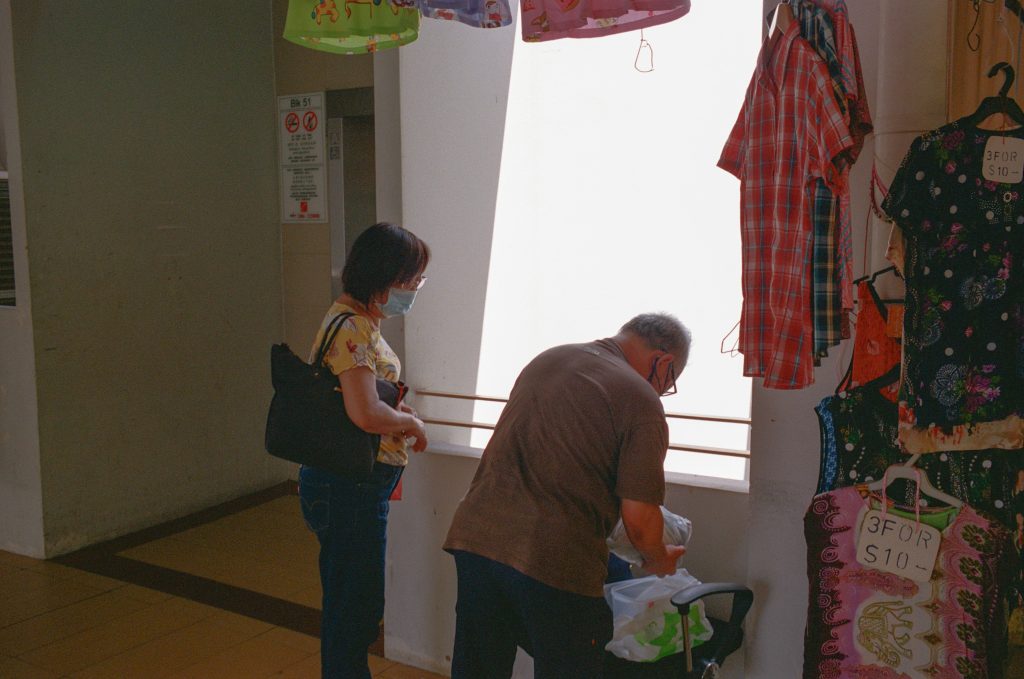
3. Breakthrough infections create manpower shortages and logistical nightmares
Wei Jun, 33, TCM Practitioner
Vaccinated with Pfizer / BioNtech
Symptoms: Sore throat, dry cough, fever, chills, body aches, blocked nose
My name is Wei Jun, I’m 33, and I’m a TCM Practitioner. I live in a 3-room HDB flat with my parents and brother.
I tested positive for COVID back in July. It started when my mother had a runny nose and fever for a couple of days. She claimed that it was her allergy to the masks, but I decided to test her anyway. She eventually tested positive with the ART, and was sent to the clinic for a PCR swab. Then MOH took over. There was compulsory PCR swabbing and blood tests for my whole family.
Honestly, I wasn’t very shocked about the positive test because after we found out about my mom, I already started developing upper respiratory tract infection symptoms. The PCR test only confirmed what I already knew.
The only thing running through my head was my parents’ condition as they are older, and that they basically haven’t lived apart from each other since they got married. They also don’t speak English very well, so it was harder to get them to understand MOH’s instructions. My other worry was whether I had spread the virus to my patients at work. It’s a huge clinic and we have a lot of patients.
Anyway, after testing positive with PCR, I had to wait for MOH to follow up. There were a few conflicting instructions from MOH and the holding hotel I was in. I guess it was a busy period—the KTV and Jurong Fishery clusters were raging at the time, and the policies were struggling to keep up.
No one could give a definite answer for any questions that we raised. My mom was sent to a nursing home after her hospital stay, so I thought it might be the same for me, but I ended up at D’Resort for the rest of my 14-day quarantine period.
There was just a lot of confusion. For example, three days before my quarantine period was set to end, I received a call from the hotel reception saying that they were transferring me. Why? I demanded to know where I was going and why I was being moved when I was only a few days away from hitting my 14 days. They couldn’t give an answer. They just stated that my name was on MOH’s list for transfer, so I told them to check again.
Two hours later, they called back to tell me that the transfer had been cancelled.
When Day 14 came around, I was released within an hour from receiving the call to discharge. But what I don’t understand is why I was not swabbed before I was released!
The disruption to my life from this experience has been real. My entire family had to be on Quarantine Order (QO). Family events were cancelled. My whole clinic had to shut down for two weeks. Some patients were also quarantined.
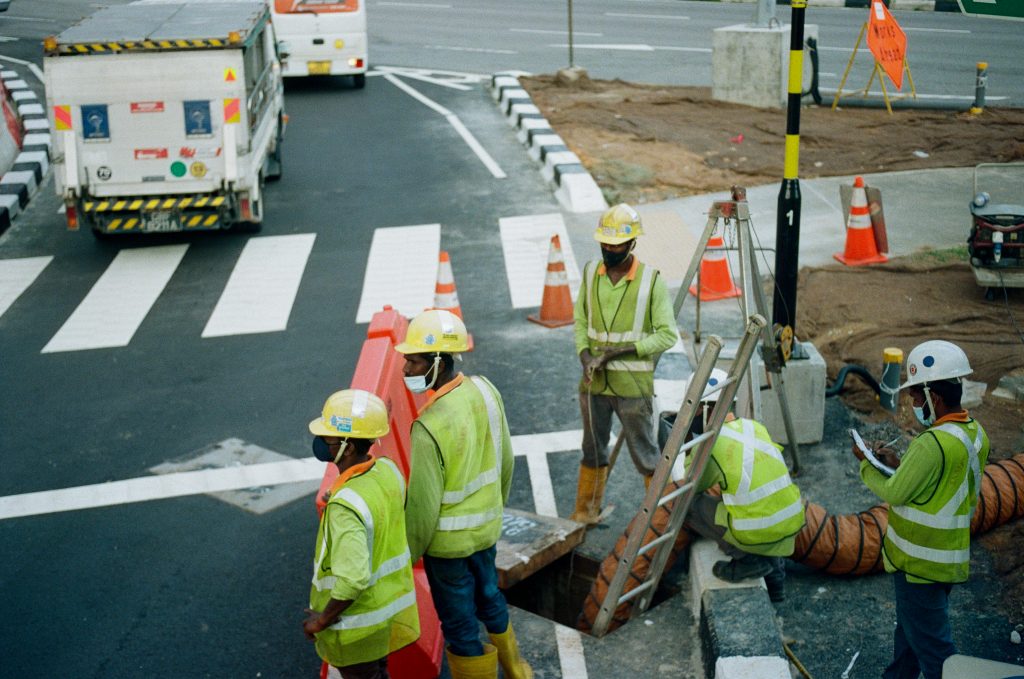
So What Have We Learned?
If I know Singaporeans as well as I think I do, your first instinct after reading this article might be to fault the Government.
To some extent, I understand this sentiment. In any other year, where there isn’t a rapidly evolving public health crisis, I might be right there with you. But the Delta variant requires a perfect COVID response when perfection at scale is almost impossible.
What I hope readers will actually take away from these stories is the sheer complexity of the Delta outbreak on the ground. The impact of a single mild case of a fully vaccinated individual can put stress on entire systems, public infrastructure, shutting down businesses. Not to mention the psychological and emotional toll that it takes on families, friends and colleagues.
This, of course, does not absolve certain lapses in communication and coordination at the top. The Government can, and should do better. They can do this by establishing clear feedback channels that incentivise the public to help them identify room for improvement.
Even then, as feedback is implemented and acted upon, the virus may then mutate again, rendering previous policies redundant. It should not, however, deter anyone from sharing ways the ministries can better improve their processes.
In the meantime, RICE readers are encouraged to do the following:
1. Get yourself vaccinated (if you’re able to): this ensures that any lapses will not be life-threatening to you or your loved ones
2. Stay up-to-date on MOH policies: policies are constantly changing in order to catch up to this rapidly evolving pandemic
3. Be mentally prepared for confusion and uncertainty anyway: welcome to the Endemic Life.
As the Gen Z kids would say: it do be like that sometimes.

